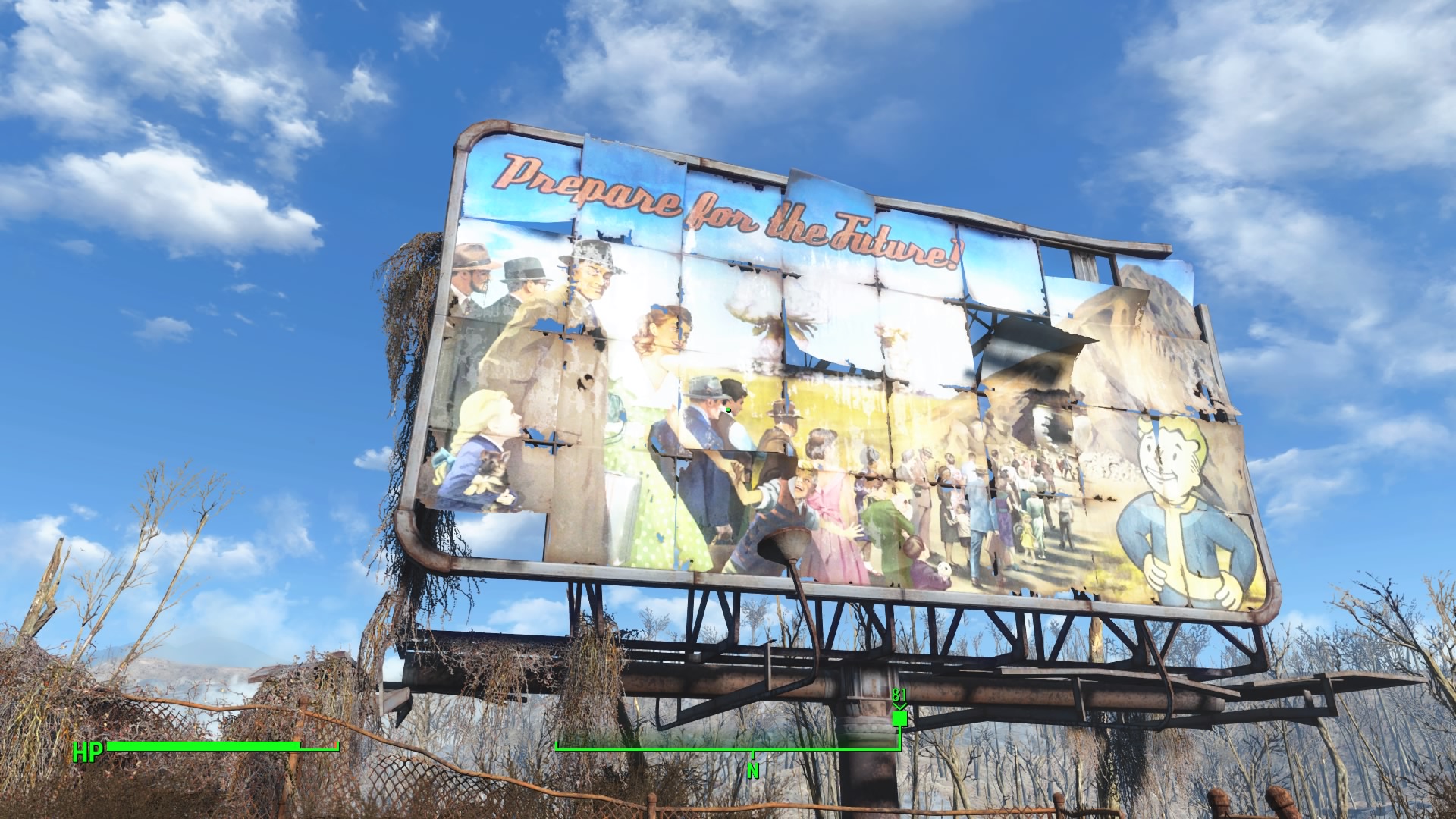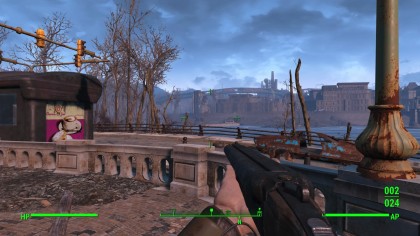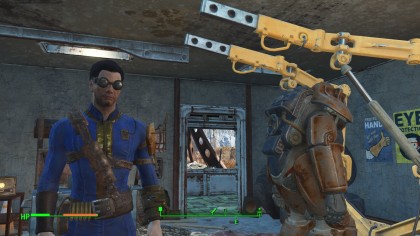Fallout 4: the good, the bad and the ugly of the Boston Wastelands
Welcome home

Fallout 4 is most definitely a Fallout game. It's a weird thing to say, but bear with us. You will love Fallout 4. You will savour the expanses of Wasteland, the story, the music, the new building system. It's a great game that is deserving of your time, but it doesn't massively shake things up. Rather, it polishes the established elements that have made this series the RPG it is - to a point - and throws in some minor new features. It tweaks and prods what made Fallout 3 and New Vegas great to create an even better game. War never changes too dramatically.
Above all, Fallout 4 is still a game of exploration. In its opening moments, you'll look around the perfectly normal, pre-nuked house replete with a baby bassinet and servo droid and feel the urge to explore every inch of the gorgeous interior.
This wide-eyed wonder carries with you for much of the game as you delve into numerous caves, subterranean strongholds and derelict subway stations. You'll watch as the world around you changes when [redacted] and your family [redacted] (spoilers, spoilers).
So yes, in many ways Fallout 4 is the game we've been waiting for since Fallout 3 steered the series away from its top-down role-playing roots. Not only is the world itself wider, but the plot is better, and more digestible, than any of the games before it. There's still a sense of mystery about what's happening but you no longer have to dig forever and a day through terminals to piece it together. There's also more emphasis on companions and, to some extent, your power armour, which we'll come to later.
But what about the other components? Do they live up to the hype? Read on to find out which moments we loved, and which ones should've been destroyed when the nuke went off.

We liked: The setting, even though it's familiar
From the RPG elements down to the environment, with a few additional new features to boot, this is largely what you've been expecting. It's hardly a spoiler to reveal that you're going to spend 99% of the game in the post-nuclear apocalyptic Wasteland (the pre-bomb sequence is a surprisingly short part of the game), and anybody who's played a Fallout game before will be in their element; when Bethesda says "Welcome home", it really means it.
That said, you'll be exploring new terrain: Fallout plonks you in the Commonwealth, aka post-war Massachusetts, as familiarly war-ravaged and dangerous as its neighbouring territories in Fallout 3. There's still an ever-present sense of threat as you wander, and you'll be challenged by tough enemies from the off. There are new enemies, but new ways to deal with them, be it weapons or skills. For example, this time the Animal Friend perk will let you befriend a Deathclaw. Yes, really.
Get daily insight, inspiration and deals in your inbox
Sign up for breaking news, reviews, opinion, top tech deals, and more.
There's also an ever-present feeling that things are happening out there which you're completely uninvolved with. Be it Skyrim or Fallout, Bethesda's tried to make its world appear alive and busy in spite of you, and in Fallout 4 you'll stumble into many events that appear unscripted. Sometimes it will be a firefight between two warring factions, and how you choose to deal with it is up to you.
There were times we died and returned to find that going through the same motions didn't trigger the same event, be it getting caught in some crossfire or having a mutant charging at us from out of the darkness. The Wasteland is at its best when it's at its least predictable and creating those anecdotes that make you feel like your time with the game is unlike anyone else's.

We liked: the new building system - it's surprisingly complex
One of the biggest - if not THE biggest - new feature of Fallout 4 is the new crafting system. It's massive, and will be a big part of your time with the game from start to finish. Items scattered around the wasteland can be salvaged and broken down to materials than you can then use to build weapons, armour modifications, furniture and base defences.
- Check out our picks of the best PS4 games
Hugh Langley is the ex-News Editor of TechRadar. He had written for many magazines and websites including Business Insider, The Telegraph, IGN, Gizmodo, Entrepreneur Magazine, WIRED (UK), TrustedReviews, Business Insider Australia, Business Insider India, Business Insider Singapore, Wareable, The Ambient and more.
Hugh is now a correspondent at Business Insider covering Google and Alphabet, and has the unfortunate distinction of accidentally linking the TechRadar homepage to a rival publication.
